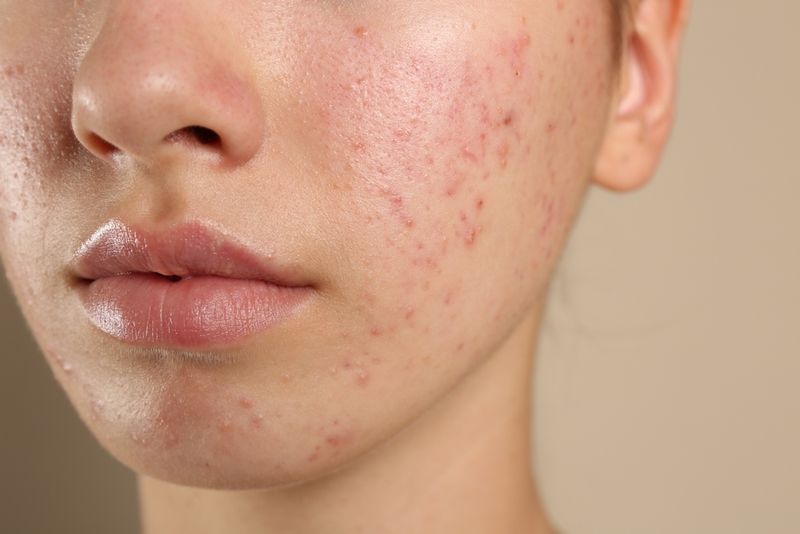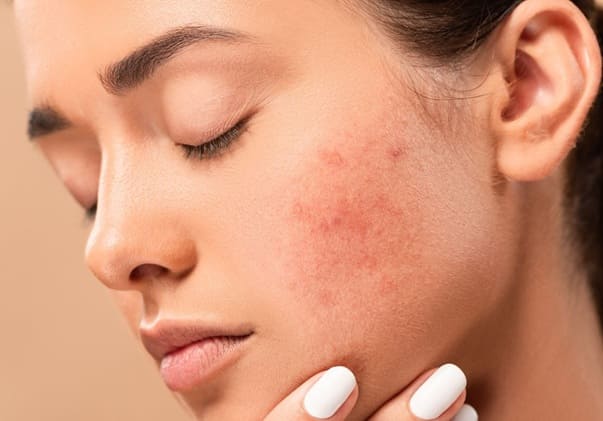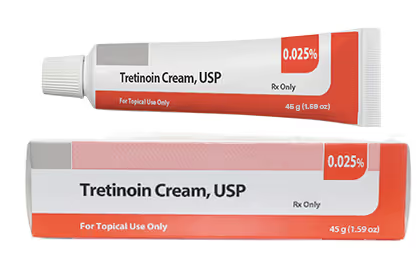Introduction
Acne is a common skin condition that affects millions of people worldwide. For those seeking effective treatment options, two popular choices often come up: Accutane (isotretinoin) and Vitamin A. In this comprehensive blog post, we'll explore the similarities, differences, and effectiveness of these two treatments for acne.
Understanding Accutane and Vitamin A
Accutane, also known as isotretinoin, is a powerful medication derived from Vitamin A. It is widely recognized as one of the most effective treatments for persistent acne. On the other hand, Vitamin A itself, particularly in the form of retinyl palmitate, has also been used to treat acne for decades.
Both Accutane and oral Vitamin A share some similarities in their effects on the body. They are both converted to retinol, which is then converted to retinoic acid, the active form that affects skin cells and oil production. This conversion process is key to understanding how these treatments work to combat acne.
Efficacy in Treating Acne
Accutane has long been considered the gold standard for treating persistent acne. It is particularly effective for any type of persistent acne that doesn't respond to other treatments. Accutane works by reducing oil production, treating severe acne, producing fast results, minimizing scarring, and often improving patients' self-esteem as a result of clearer skin.
Interestingly, recent research suggests that oral Vitamin A may be a viable alternative to Accutane in some cases. According to a study, the efficacy of Vitamin A in acne treatment is comparable to isotretinoin, with similar relapse rates. However, it's important to note that Vitamin A should only be prescribed for acne when isotretinoin is unavailable and with careful attention to patient selection and education.
Mechanism of Action
Both Accutane and oral Vitamin A work in similar ways to treat acne. They are both converted to retinoic acid in the body, which then acts on skin cells. This action leads to several beneficial effects:
- Reduction in oil production
- Normalization of skin cell turnover
- Reduction in inflammation
- Prevention of clogged pores
These effects combine to create a powerful anti-acne action, reducing existing acne and preventing new breakouts.
Side Effects and Safety Considerations
While both treatments can be effective, they differ significantly in their side effect profiles. Accutane is known for having a range of potential side effects, some of which can be quite severe. According to Healthline, these may include:
- Dry skin, lips, and eyes
- Nosebleeds
- Skin fragility and increased risk of scarring
- Hair thinning
- Muscle and joint pain
- Digestive and intestinal symptoms
- Headaches
On the other hand, oral Vitamin A generally has fewer side effects, with dry skin being the most commonly reported issue. However, it's crucial to note that Vitamin A can build up in the body's tissues, potentially leading to toxicity if taken in high doses over extended periods.
Dosage and Administration
The dosage and administration of Accutane and Vitamin A differ significantly. Accutane is typically prescribed in a course lasting several months, with the dosage carefully calculated based on the patient's weight and acne severity. It's important to note that Accutane is not fat-soluble and does not build up in the body, which allows for more precise dosing.
Oral Vitamin A varies in effectiveness for acne treatment. The recommended upper limit for Vitamin A supplementation is 3,000 IU. However, the dose necessary to mimic Accutane’s effects would be potentially toxic to consume, ranging from 36,000 IU to 500,000 IU per day. Consult your doctor to determine the upper limit of Vitamin A dosing that is right for you. Do not take excessively high doses of Vitamin A without proper medical supervision.
Cost Considerations
One potential advantage of oral Vitamin A is its cost. It is generally cheaper than Accutane, which could make it a more accessible option for some patients. However, the cost should not be the only factor in deciding between these treatments. The efficacy, side effects, and individual patient factors should all be taken into account.
Availability and Accessibility
Accutane is a prescription medication that requires regular monitoring by a healthcare provider. This can sometimes lead to long wait times for appointments. On the other hand, Vitamin A supplements are more readily available, but high-dose Vitamin A for acne treatment should still be taken under medical supervision.
Honeydew Care: A Modern Solution for Accutane Treatment
For those considering Accutane treatment, Honeydew Care offers a convenient and cost-effective solution. Honeydew Care is a telemedicine platform that provides on-demand treatment for acne and other dermatological conditions, including Accutane prescriptions.
Benefits of Honeydew Care's Accutane Treatment
- Same day and next day appointments, eliminating the average 33-day wait time for dermatologist appointments
- Cost savings, with members saving an average of $600/year on medication costs
- Time-saving, by eliminating travel and waiting room time
- Ongoing expert care when needed
With Honeydew Care, patients can access Accutane treatment quickly and conveniently, without the usual hurdles of traditional healthcare. This can be particularly beneficial for those dealing with persistent acne who need prompt and effective treatment.
Conclusion
Both Accutane and Vitamin A can be effective treatments for acne, with similar mechanisms of action. Accutane is generally considered more potent and is often the go-to treatment for persistent acne. However, recent research suggests that high-dose Vitamin A may be a viable alternative in some cases.
The choice between Accutane and Vitamin A should be made in consultation with a healthcare provider, taking into account the severity of acne, potential side effects, cost, and individual patient factors. For those considering Accutane, Honeydew Care offers a modern, convenient, and cost-effective way to access this powerful acne treatment.
Remember, effective acne treatment is not just about clearing your skin—it's about boosting your confidence and improving your quality of life. Whether you choose Accutane, Vitamin A, or another treatment option, the goal is to find a solution that works best for you and your skin.























